GenMedStroke
The GenMedStroke team conducts research on cerebrovascular diseases, their major complication being stroke.
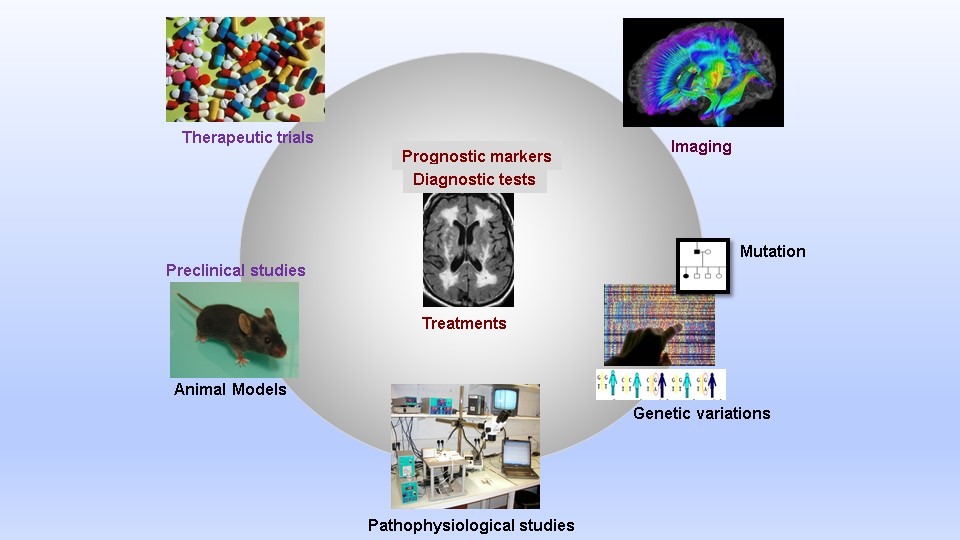
Goals of GeneMedStroke Team
The main objectives of team 4 “GeneMedStroke” are i) to improve the etiological diagnosis of cerebrovascular diseases through the identification of their genetic determinants; ii) to develop new methodological tools to identify these genetic determinants; iii) to better understand their mechanisms, by combining clinical studies in patients and preclinical studies; iv), to research and develop useful tools for the development of preventive and curative therapies for these conditions.
Hospital-university links and research networks
This translational research activity benefits from the close links between the GenMedStroke team, the neurovascular molecular genetics department of the Saint-Louis Hospital (national reference laboratory for these conditions), the Translational Neurovascular Center, the Department of Neurology and CERVCO (National reference center for rare neurovascular diseases, structures located on the Lariboisière site. The management of these 3 structures is ensured by the 2 principal investigators of the team. In addition, the team co-coordinates the University Hospital Federation (FHU) NeuroVasc.
The team coordinates or is part of several research networks including the RHU Treat-SVD , the Leducq Re-VAMP international network , the Inserm Genomic Variability GOLD transversal program.
Approaches used in our research
We use a combination of pan-genomic and candidate gene network approaches to identify the molecular basis of different groups of cerebrovascular diseases observed at all stages of life from fetus to adult, including fetal cerebral hemorrhage, moyamoya disease and diseases of the small cerebral arteries. A combination of this type of approach with the development of new statistical tools is also used to identify the genes involved in these conditions.
After the identification of these genes, we are developing cellular models to explore the functional consequences of the identified mutations and relevant murine models of these conditions (cerebral cavernous angiomas and moyamoya disease).
We are studying in parallel the natural history of different hereditary cerebrovascular diseases, the variability of clinical manifestations and their possible predictors during longitudinal studies. We are evaluating different types of imaging markers in patients with these rare conditions to understand their variabilities, clinical correlates and predictive values for the preparation of future clinical trials. These markers are compared with those obtained in frequent sporadic identical diseases.
Recent articles
Phenotypic variability in 446 CADASIL patients: Impact of NOTCH3 gene mutation location in addition to the effects of age, sex and vascular risk factors. J Cereb Blood Flow Metab 2022.
Moment estimators of relatedness from low-depth whole-genome sequencing data. BMC Bioinformatics 2022.
End-truncated LAMB1 causes a hippocampal memory defect and a leukoencephalopathy. Ann Neurol 2021.
Heterozygous HTRA1 nonsense or frameshit mutations are pathogenic. Brain 2021.
Hereditary Cerebral Small Vessel Diseases and Stroke: A Guide for Diagnosis and Management. Stroke 2021.
New insights into minor splicing-a transcriptomic analysis of cells derived from TALS patients. RNA 2019.
More publications of the team
Members of the team
Read more
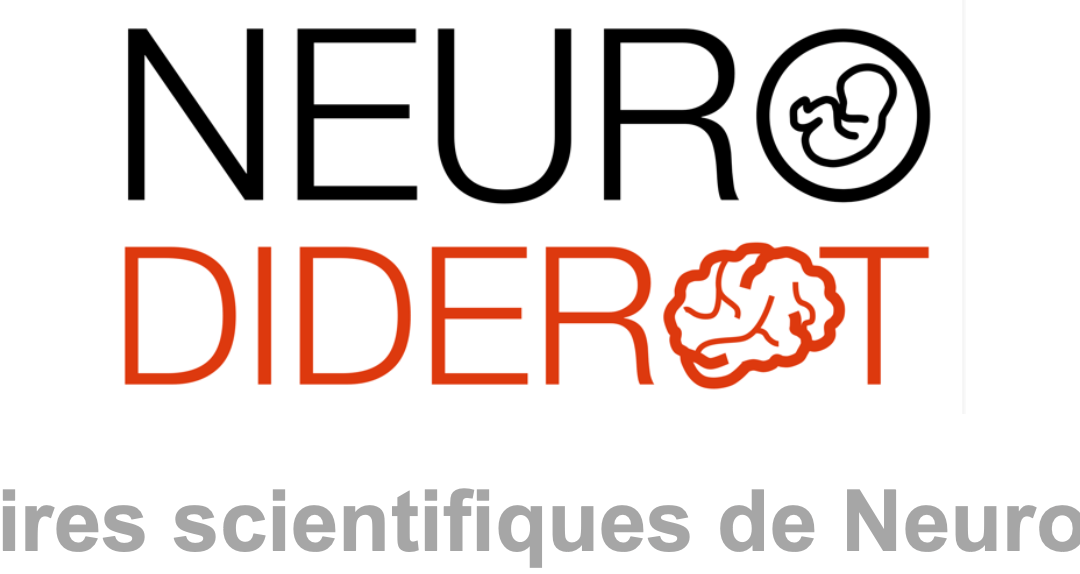
Conference Dr. Boris Chaumette
Seminaire Dr Boris Chaumette
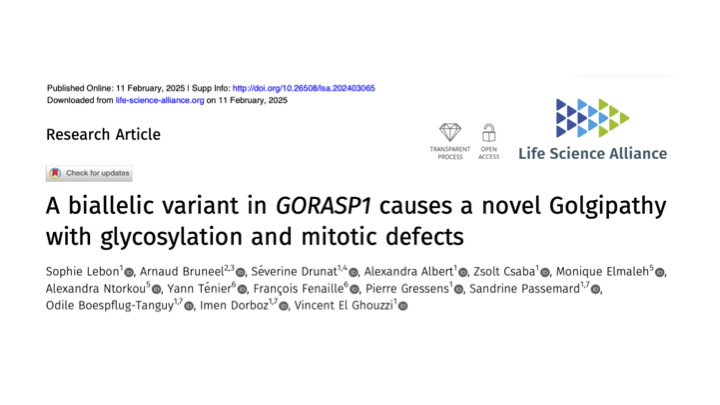
New Golgipathy identified in NeuroDev team
The NeuroDev team publishes an article in Life Science Alliance [1] identifying the first human pathogenic variant of GORASP1, the gene encoding the Golgi stacking protein GRASP65, and demonstrating its consequences on glycosylation and mitotic progression. [1] S....
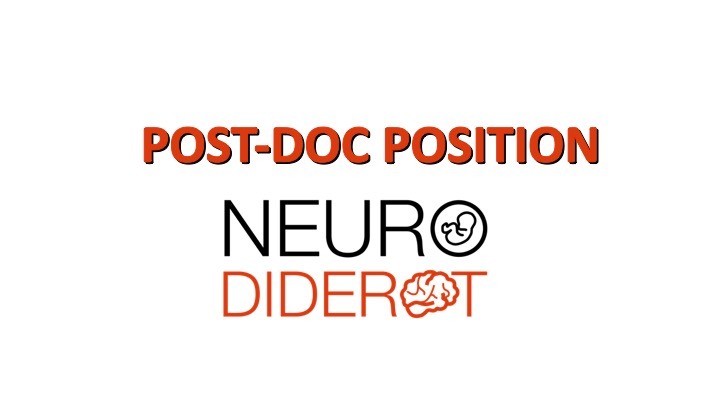
Post-doc opportunity (1-2 years) within the group “Mitochondria and NDD” in the NeuroDev team
POSITION DESCRIPTION Postdoctoral position in the field of Neurosciences Type of contract: temporary position (CDD) Contract/project period: 1-2 years Expected date of employment: 1.04.2025 Proportion of work: 100% Workplace: Université Paris Cité, Inserm,...
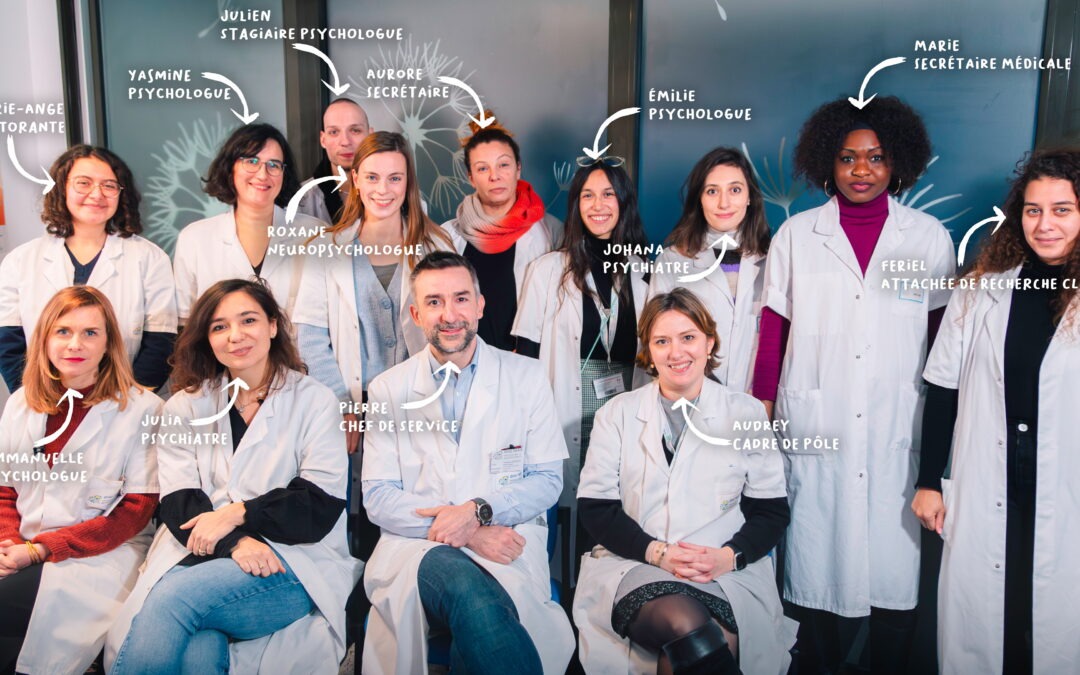
Advancing psychiatry through Sleep and Chronobiology research
The “Mood” research axis of the SleepCmd team is dedicated to understanding the intricate links between sleep, circadian rhythms, and mood disorders such as depression, bipolar disorder, seasonal affective disorder, and suicide. Using state-of-the-art methods, the...
